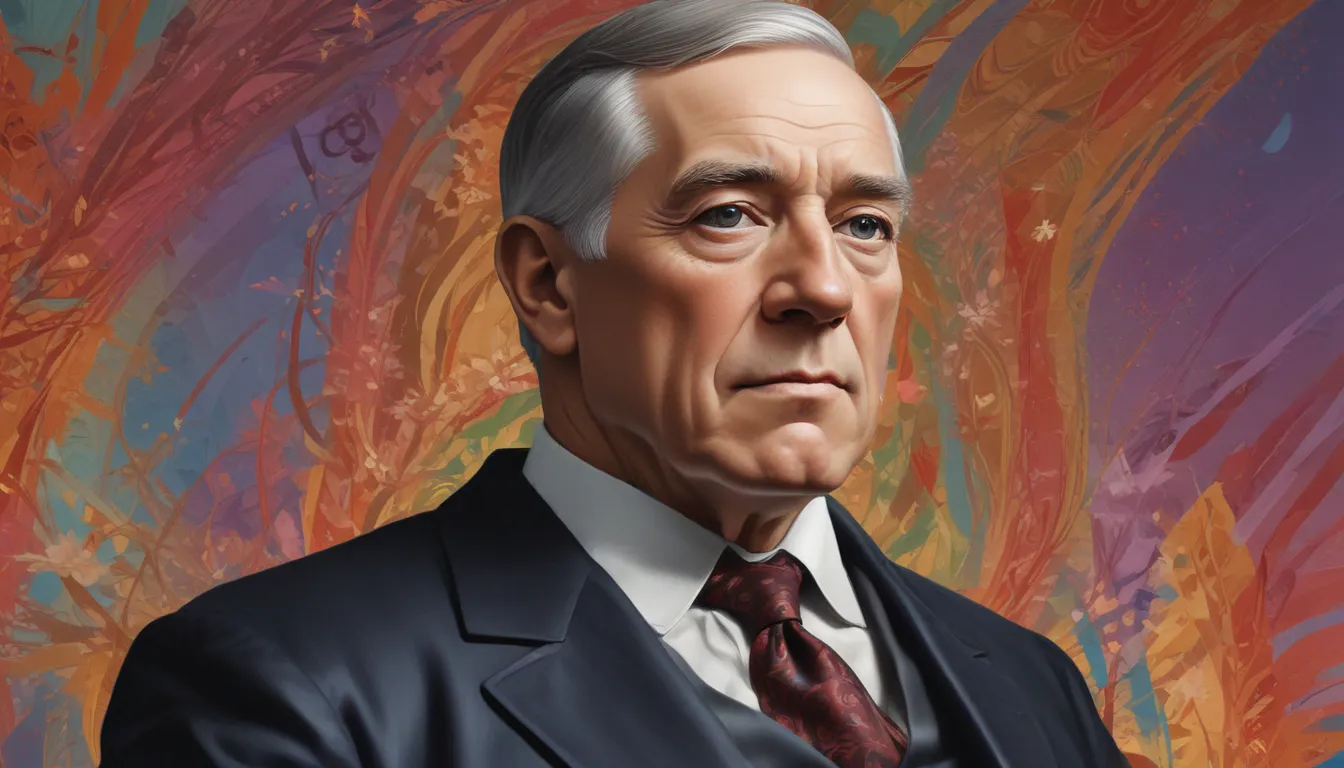The images in our articles may not match the content exactly. They are used to grab your attention, not to show the exact details in the text. The images complement the text but do not replace it.
Are you ready to embark on a scientific journey through the remarkable life and achievements of Robert Woodrow Wilson? Dive into the captivating world of cosmology and physics as we uncover eight mesmerizing facts about this esteemed American physicist. From his groundbreaking discovery of cosmic microwave background radiation to his prestigious Nobel Prize win, Wilson’s legacy continues to inspire future generations of scientists and shape our understanding of the universe.
Exploring the Universe Through Wilson’s Eyes
Robert Woodrow Wilson, born on January 10, 1936, in Houston, Texas, is a pivotal figure in the realm of scientific discovery. His profound contributions to the field of cosmology have reshaped our understanding of the universe’s origins and evolution. Wilson’s work not only solidified his place in scientific history but also continues to influence and inspire the scientific community today.
Fact 1: Wilson’s Nobel Laureate Journey
- Robert Woodrow Wilson, a celebrated American physicist, was awarded the Nobel Prize in Physics in 1978.
- His groundbreaking research on cosmic microwave background radiation provided strong evidence for the Big Bang theory, revolutionizing our understanding of the universe’s origins and evolution.
- Wilson’s innovative work alongside Arno Penzias at the Bell Telephone Laboratories led to the confirmation of residual energy from the early stages of the universe, bolstering the credibility of the Big Bang theory.
Fact 2: The Foundation of Cosmic Discovery
- Wilson’s pivotal role in developing a technique to measure cosmic background radiation laid the groundwork for further advancements in the field of cosmology.
- The design and implementation of the horn antenna, a highly sensitive radio antenna, enabled precise measurements of cosmic microwave background radiation, offering key insights into the formation of the universe.
- This groundbreaking technology not only validated the Big Bang theory but also propelled advancements in scientific research, inspiring future generations of scientists to explore the mysteries of the cosmos.
Fact 3: A Trailblazer in Astrophysics
- In addition to his Nobel Prize, Wilson received numerous prestigious awards, including the Henry Draper Medal, the Gold Medal of the Royal Astronomical Society, and the National Medal of Science, for his significant contributions to the field of physics.
- Wilson’s work on cosmic microwave background radiation not only expanded our understanding of the universe’s origins but also contributed to the advancement of radio astronomy.
- His innovative techniques and instruments have paved the way for further exploration and discovery in the field, shaping the way scientists study and interpret the vast cosmos.
Fact 4: Wilson’s Academic Legacy
- Throughout his esteemed career, Wilson held various academic positions at renowned institutions such as Harvard University and the University of California, San Diego.
- His expertise and insight have inspired and shaped the minds of aspiring physicists, leaving a lasting impact on the field of astrophysics.
- Wilson’s dedication to scientific inquiry and his penchant for innovation continue to resonate with scholars and researchers, fueling a passion for exploring the mysteries of the universe.
Fact 5: Wilson’s Enduring Impact on Scientific Research
- The profound influence of Wilson’s work extends far beyond his groundbreaking discoveries in cosmology and astrophysics.
- His contributions have not only enriched our understanding of the universe but have also paved the way for ongoing research and exploration in the field, driving scientific advancements and inspiring new generations of researchers.
- Wilson’s legacy serves as a testament to the power of curiosity, determination, and hard work in the pursuit of scientific discovery, motivating scientists to push the boundaries of knowledge and explore the wonders of the cosmos.
Embracing Wilson’s Legacy and Beyond
As we reflect on the remarkable life and achievements of Robert Woodrow Wilson, we are reminded of the transformative power of scientific inquiry and exploration. Wilson’s legacy continues to inspire and guide us as we delve deeper into the mysteries of the universe, driven by a sense of wonder and curiosity that transcends time and space.
Whether you are an aspiring scientist, a curious explorer, or a lifelong learner, Wilson’s story serves as a beacon of inspiration, urging us to push the boundaries of knowledge and embrace the unknown with courage and conviction. Let us honor Wilson’s enduring legacy by embarking on our own journey of discovery, fueled by a passion for understanding the intricate tapestry of the cosmos.
Conclusion
In conclusion, Robert Woodrow Wilson’s remarkable contributions to the field of cosmology and physics have reshaped our understanding of the universe and inspired generations of scientists to push the boundaries of knowledge. His groundbreaking work on cosmic microwave background radiation has left an indelible mark on scientific research, opening doors to new discoveries and expanding our comprehension of the cosmos.
As we celebrate Wilson’s legacy and achievements, let us remember the spirit of curiosity, perseverance, and innovation that guided him on his scientific journey. By embracing Wilson’s legacy and building upon his discoveries, we can continue to unravel the mysteries of the universe and chart new horizons in the field of astrophysics.
FAQs
Q: What is the significance of Robert Woodrow Wilson’s discovery of cosmic microwave background radiation?
A: Wilson’s discovery provided strong evidence for the Big Bang theory, fundamentally changing our understanding of the universe’s origins and evolution.
Q: How did Robert Woodrow Wilson contribute to our understanding of the universe?
A: Wilson’s work on cosmic microwave background radiation confirmed the Big Bang theory and offered insights into the early stages of the universe, paving the way for future discoveries in astrophysics.
Q: What impact has Robert Woodrow Wilson had on the field of astrophysics?
A: Wilson’s groundbreaking discovery has inspired advancements in the field of astrophysics, shaping the way scientists study and explore the universe and driving scientific innovation.
Q: What other accomplishments did Robert Woodrow Wilson achieve?
A: In addition to his Nobel Prize win, Wilson made significant contributions to radio astronomy, pushing the boundaries of technological innovation and advancing our understanding of the cosmos.
Q: Has Robert Woodrow Wilson received any prestigious awards?
A: Yes, Wilson was awarded the Nobel Prize in Physics in 1978 for his groundbreaking work on cosmic microwave background radiation, solidifying his place in scientific history.
Explore the Universe with Wilson’s Vision
Robert Woodrow Wilson’s legacy transcends time and space, inspiring us to embrace the wonders of the cosmos and embark on a journey of discovery. By following in Wilson’s footsteps and nurturing our passion for scientific inquiry, we can continue to push the boundaries of knowledge and unlock the secrets of the universe.
Join us on this exhilarating quest for wisdom and exploration as we celebrate the enduring legacy of Robert Woodrow Wilson, a pioneer in the field of astrophysics whose contributions have reshaped our understanding of the cosmos. Let us honor Wilson’s legacy by delving into the mysteries of the universe with courage, curiosity, and a spirit of boundless exploration.






